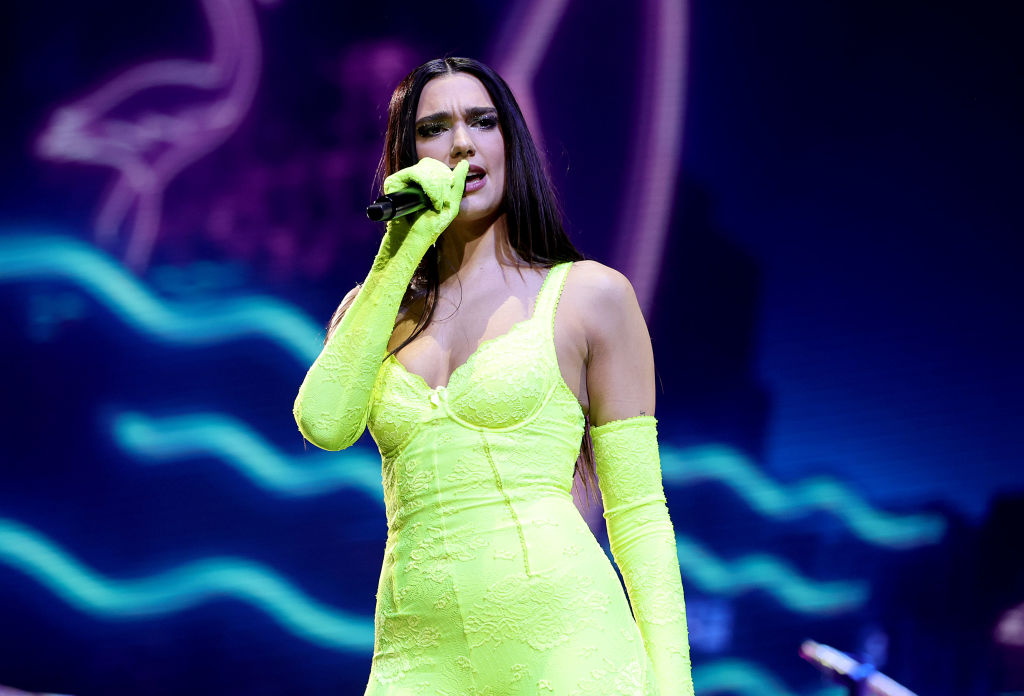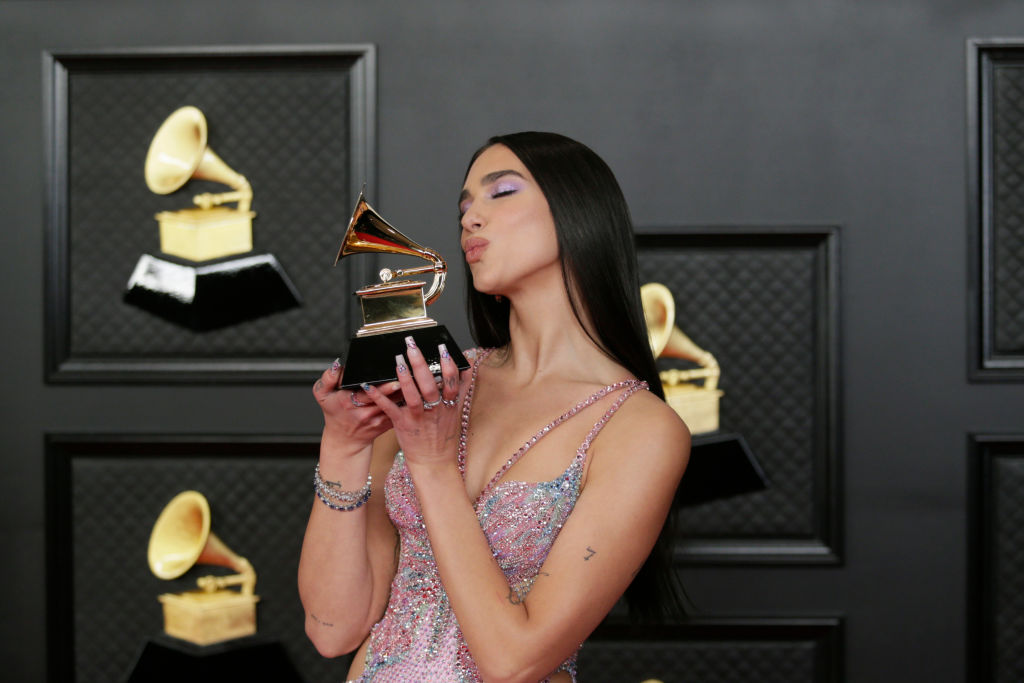Within a week, Dua Lipa has been sued twice for copyright infringement in regard to her 2020 single, Levitating.

The first complaint was filed last week by the Florida reggae band Artikal Sound System and it claims Dua Lipa plagiarized their 2017 song Live Your Life.
A second complaint was filed on Friday by songwriters L. Russell Brown and Sandy Linzer. They allege Levitating copied Wiggle and Giggle All Night, a disco song from 1979, as well as the 1980 track Don Diablo — a song for which the pair hold the copyright because it had infringed on Wiggle and Giggle All Night.
“Defendants have levitated away plaintiffs’ intellectual property,” Brown and Linzer’s lawyers joked in the legal complaint. “Plaintiffs bring suit so that defendants cannot wiggle out of their willful infringement.”
Levitating, a single off of Dua Lipa’s 2020 album Future Nostalgia, peaked at number two on Billboard’s Hot 100 and was named the number one Hot 100 song of 2021. According to Billboard, the track is also the longest-running top 10 song by a female artist.
Artikal Sound System’s claim relates to the chorus of Levitating, while Brown and Linzer allege that Dua Lipa copied their music in the verse of her hit song. The pair cited the popularity of the intro verse of Levitating on TikTok in the lawsuit, claiming that their intellectual property was the key to the song’s success.
“Because video creators frequently truncate the already brief snippets of sound on TikTok, the signature melody often comprises 50% or more of these viral videos.”
These lawsuits come amidst another high-profile legal battle in the realm of musical copyright infringement. On Tuesday, Ed Sheeran appeared in court to defend his song Shape of You from a similar lawsuit, the BBC reports.

Get breaking National news
But according to legal experts, proving copyright infringement in music is no small feat.
“Coincidental similarity is more common than people think it is. Intentional melodic copying among songwriters is less common than people think it is,” notes Joe Bennett, a musicologist from the Berklee College of Music, via Rolling Stone.
“There are so many thousands of songs being written and uploaded every day. So many songwriters toiling away independently across the world, all trying to create something that people will like. So it does stand to reason that you’re going to get fragmentary coincidences from time to time.”
What’s important in arguing musical copyright cases isn’t sound, style, or “vibe,” but analyzing a song’s musical composition and recording. That means comparing notes, rhythms, and melodic context such as the underlying chords and harmonies being created.
For expert witness and forensic musicologist Judith Finell, that analysis boils down to a formula.
“I’ve developed a kind of a hierarchy that I look at, and I testify about it,” Finell said in an interview with NBC News. “It would be melody, meaning pitch, and melody, meaning rhythm but also chords and lyrics. How much of the material exists in each song?”
- ‘Trailer Park Boys’ actor Mike Smith to stand trial for sexual assault
- David Bowie’s daughter says she missed dad’s death when forced into rehab centre
- Martin Short’s family ‘devastated’ by death of daughter, Katherine, at 42
- ‘Home Improvement’ star Zachery Ty Bryan jailed after 6th arrest in 5 years
The question of plagiarism versus inspiration is muddy, especially since so much modern pop music references older genres. Dua Lipa herself admitted that she was trying to emulate the disco and dance-pop records of her youth in creating Future Nostalgia.
Take a listen to the songs involved, below, and decide for yourself.









Comments
Want to discuss? Please read our Commenting Policy first.